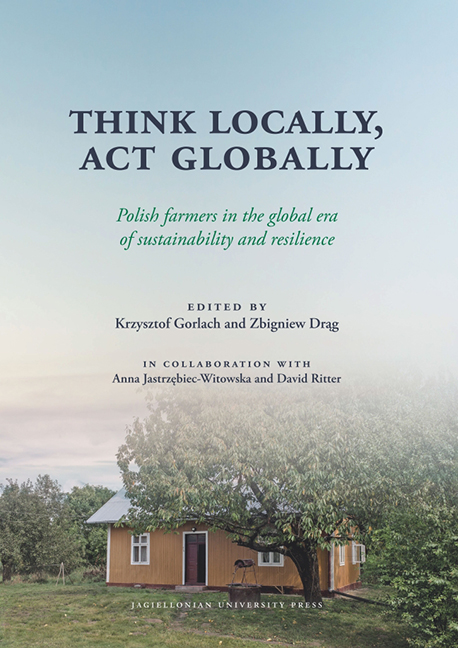Book contents
- Frontmatter
- Contents
- Family Farming: A foreword
- An Introductory Letter from the First Editor: Where the horses, cows, and even cats had their own names
- Part One Theoretical and Methodological Considerations
- Part Two Changes in the Post-Communist Transformation
- Part Three Diversification of Farmers’ Strategies
- Part Four Some Independent Studies
- Conclusion: Some Final Remarks from the First Editor
- Afterword: Renewing a Sociology of Agriculture
- Biograms
Family Farming: A foreword
Published online by Cambridge University Press: 16 July 2022
- Frontmatter
- Contents
- Family Farming: A foreword
- An Introductory Letter from the First Editor: Where the horses, cows, and even cats had their own names
- Part One Theoretical and Methodological Considerations
- Part Two Changes in the Post-Communist Transformation
- Part Three Diversification of Farmers’ Strategies
- Part Four Some Independent Studies
- Conclusion: Some Final Remarks from the First Editor
- Afterword: Renewing a Sociology of Agriculture
- Biograms
Summary
At the level of everyday language, the notion of the family farm is fairly straightforward and therefore widely shared. It is, first, a farm owned (or at least controlled) by the family. Second, it is worked mainly (and often exclusively) by members of the family. And third, the main decisions regarding the farm are taken within the family. The farm may be small or large, the family may differ also very much in size and composition, but whatever the variation, it is time and again the organic unity of family and farm that is decisive. The advantage of this folk definition is that it is easy applicable and mostly uncontested (although borderline cases may provoke considerable debate). The indicated features also figure in the definition used by FAO (2014): “A family farm is an agricultural holding which is managed and operated by a household and where farm labor is largely supplied by that household” (2014). At the same time, though, this definition sometimes turns out to be problematic, partly due to its simplistic nature. It takes just two or three characteristics out of a much wider set of features that together constitute family farming.
Some conceptual clarification
In current debates the notion of family farming often associates with those of peasant farms and small holdings. Although there always has been, in practice, considerable overlap, it is important to clearly distinguish these notions conceptually. This applies especially since the widening distances between the three contribute to much of the current problems in agriculture, the countryside and food provisioning—and this applies as much to Europe as it is true for other parts of the world. Whilst once being a more or less organic unity (deviations at the fringes apart), family farming, peasant agriculture and small holdings are now increasingly constituted into separated entities and this turns “family farming” increasingly into a contradictory, confusing and Janus-faced phenomenon. Agricultural policies play an important role in this and this is again the case in both Europe and elsewhere.
Strictly speaking, the notion of family farming refers to legal relations. Who owns (and/or controls) the land and other main resources? Who provides the labor power? Who takes the decisions?
- Type
- Chapter
- Information
- Think Locally, Act GloballyPolish farmers in the global era of sustainability and resilience, pp. 9 - 22Publisher: Jagiellonian University PressPrint publication year: 2021



